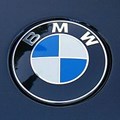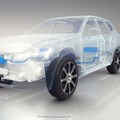Diesel at cross-roads as Germany's car bosses, politicians meet

With major cities also eyeing partial bans on diesel vehicles to fight deadly smog, the sector with more than 800,000 jobs in the balance desperately needs a strategy.
Two months before a general election, both parties in Chancellor Angela Merkel's right-left grand ruling coalition are in no mood to mollycoddle an industry that is fast losing popularity.
"A responsibility to win back trust"
"The automobile industry has steered itself onto difficult terrain" ... and it "has a responsibility to win back trust," Transport Minister Alexander Dobrindt, a member of Merkel's Bavarian allies CSU, said at the weekend.
"I'm not up for cronyism," he added.
Merkel was more nuanced, as she noted the huge number of jobs at stake.
"The government expects openness, transparency from the auto industry at the auto summit," said her spokeswoman Ulrike Demmer.
"The car industry is of strategic importance ... it must be strong and innovative but also honest. So it's about criticising what needs to be criticised, but to do so while bearing in mind that it's a strategically important industry in Germany," added Demmer.
The first cracks in the oft-vaunted sector had emerged in September 2015, when Volkswagen admitted installing illegal devices in millions of vehicles worldwide to rig pollution emissions readings.
But suspicions of similar cheating have since widened to other German carmakers, including Mercedes-Benz maker Daimler and BMW.
In July, Spiegel magazine heaped on further pressure as it published details of a VW letter to German and European competition authorities which it said showed that auto giants colluded on technology, suppliers, costs, sales and markets since the 1990s.
Adding to the clouds hanging over the industry, a court in Stuttgart - the home city of Mercedes and Porsche - ruled that only a partial ban on diesel vehicles would be an effective method to clear the air of poisonous nitrogen oxides (NOx) emissions.
Public health outweighs the interests of diesel vehicle drivers, the court ruled.
Public in favour of outlawing diesel
Germany has already been warned by the European Commission over its air quality, and now public opinion is starting to swing in favour of outlawing diesel.
A survey commissioned by Greenpeace found that 57% of Germans back a ban on such vehicles in cities with poor air quality.
The problem is that the industry had invested heavily on diesel as it spews out less climate-altering carbon dioxide gas than petrol-burning motors.
For this reason, Merkel herself has warned against "demonising diesel".
But the flipside of the technology is that it emits more NOx, contributing to the formation of smog and fine particles that cause respiratory and cardiac problems.
For now, Germany's auto giants are hoping to ward off a ban by voluntarily offering software patches for diesel vehicles to limit the harmful emissions, buying time as they ramp up electric car development.
VW has avowed its ambition to be the world leader in electric cars by 2025, while leading German carmakers had also pledged cooperation on a Europe-wide network of electric charging stations.
Going into the summit, the two ministers due to lead the talks - conservative minister Dobrindt and Environment Minister Barbara Hendricks, a social democrat, - were also still struggling to find a common line.
While Dobrindt favours the cheaper option of a software tweak, Hendricks views them as insufficient.
Ahead of the 24 September election, the issue has added fuel to criticisms from Merkel's challengers, who accuse her and her ministers of failing to head off the crisis due to their unhealthily close relationship with automakers.
Former environment minister Juergen Trittin of the Greens minced no words as he accused the car industry and the government of collusion.
"At the head of the cartel is the chancellor," he charged.
Both industry and politics are to blame in the view of Stefan Bratzel from the Center of Automotive Management.
While carmakers had driven themselves into a corner through their emissions cheating, "the culture of looking the other way and years of talks that are only symbolic have also indirectly hurt the automobile industry hard," said Bratzel, calling for an "overhaul" in the relationship between politics and industry.
Source: AFP
Source: I-Net Bridge

For more than two decades, I-Net Bridge has been one of South Africa’s preferred electronic providers of innovative solutions, data of the highest calibre, reliable platforms and excellent supporting systems. Our products include workstations, web applications and data feeds packaged with in-depth news and powerful analytical tools empowering clients to make meaningful decisions.
We pride ourselves on our wide variety of in-house skills, encompassing multiple platforms and applications. These skills enable us to not only function as a first class facility, but also design, implement and support all our client needs at a level that confirms I-Net Bridge a leader in its field.
Go to: http://www.inet.co.za


